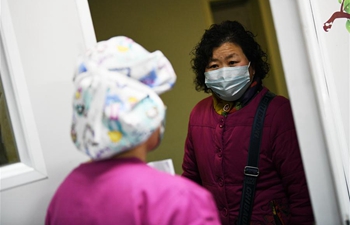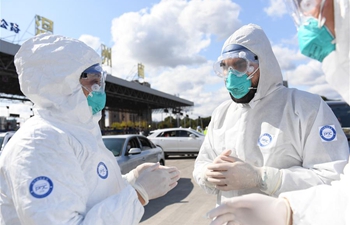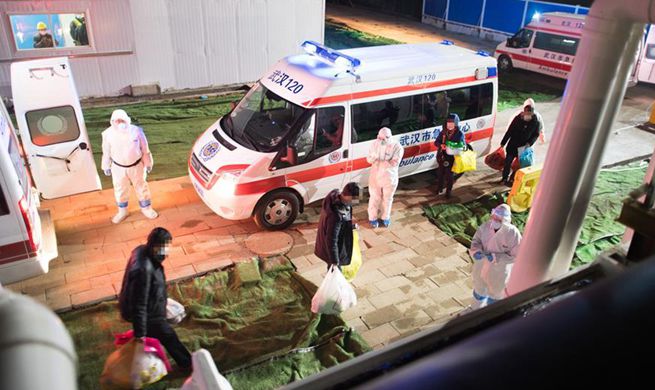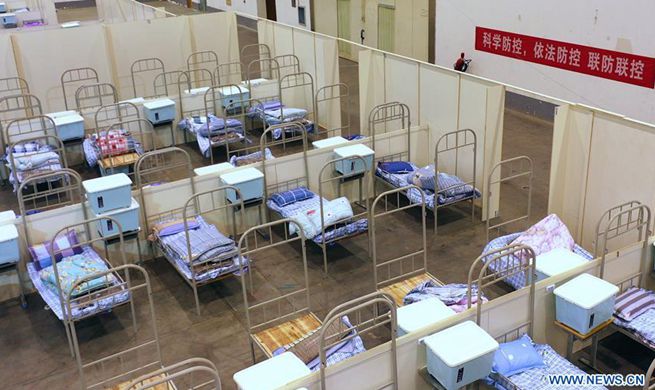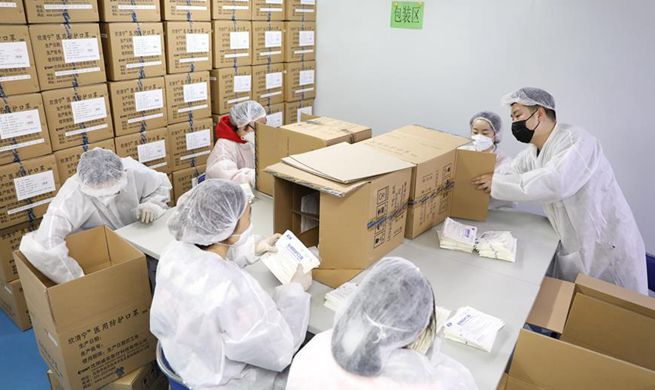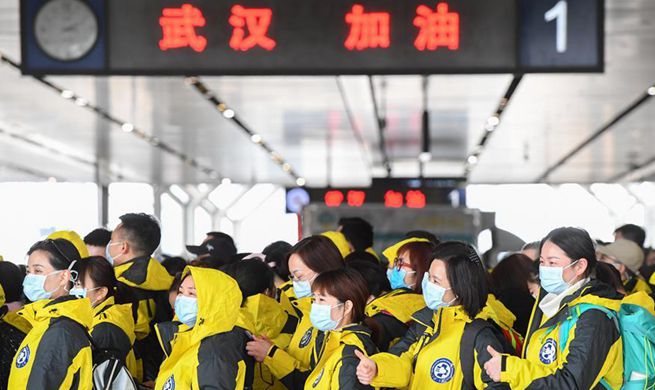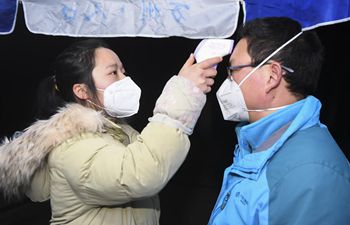WUHAN, Feb. 9 (Xinhua) -- Ali Wari, a Palestinian living in Wuhan, the epicenter of the novel coronavirus outbreak, and a group of his Arab friends are waiting for permission from the local authorities to volunteer in the anti-virus campaign.
"I'm a doctor. I speak Arabic, Chinese and English. I can help treat patients, register information and carry things," Wari said.
The assemblage of people convened from a chat group on China's instant messaging app WeChat.
Named "Wuhan 2019-nCoV," the group has about 480 Arab members, most of whom live or work in the hard-hit city of Wuhan, the capital city of central Hubei Province.
"I translated and spread information about the virus for my friends in the beginning. Then more friends of my friends joined in the group," said Wari, who works for Hubei Topgene Biotechnology, a high-tech enterprise, and is also a thoracic surgeon with proficiency in Chinese.
Over the past few weeks, Wari translated and shared authoritative information about the new virus, especially the measures taken by Wuhan, in the chat group every day and answered members' questions.
"I'm very confident in the control of the outbreak. But for young foreign students, they may panic despite support from their universities. So, at this point, I should calm them like a big brother."
Wari initiated a rally of volunteers in the chat group on Wednesday night, and at least 30 Arabs volunteered to take part in the ongoing anti-virus war.
Mohamad Khatib, also from Palestine, asked for his family's consent to join Wari. "I believe there must be a solution to the epidemic, but it will take time. We should keep trying and never give up."
Having studied in Wuhan as a PhD student for six months, Mohamad Asaad, an Egyptian, said he has fallen in love with the city and people.
"I was sad to see the colorful city in hard times. It is time to support and reciprocate those who are doing good deeds. So, I am volunteering to give a hand and support Chinese friends to defeat this harsh circumstance," Asaad said.
On Thursday afternoon, Wari, on behalf of his Arab friends, applied to the Foreign Affairs Office of Wuhan to volunteer. A receptionist noted down Wari's words and thanked him and his friends.
"I told him not to say thanks. I'm just doing what I should do. We live in Wuhan, so we love the city," said Wari, adding he had undergone a tough time in 2003 when SARS wreaked havoc on the country.
"I believe that the Chinese government can also pull through this time," he said.







